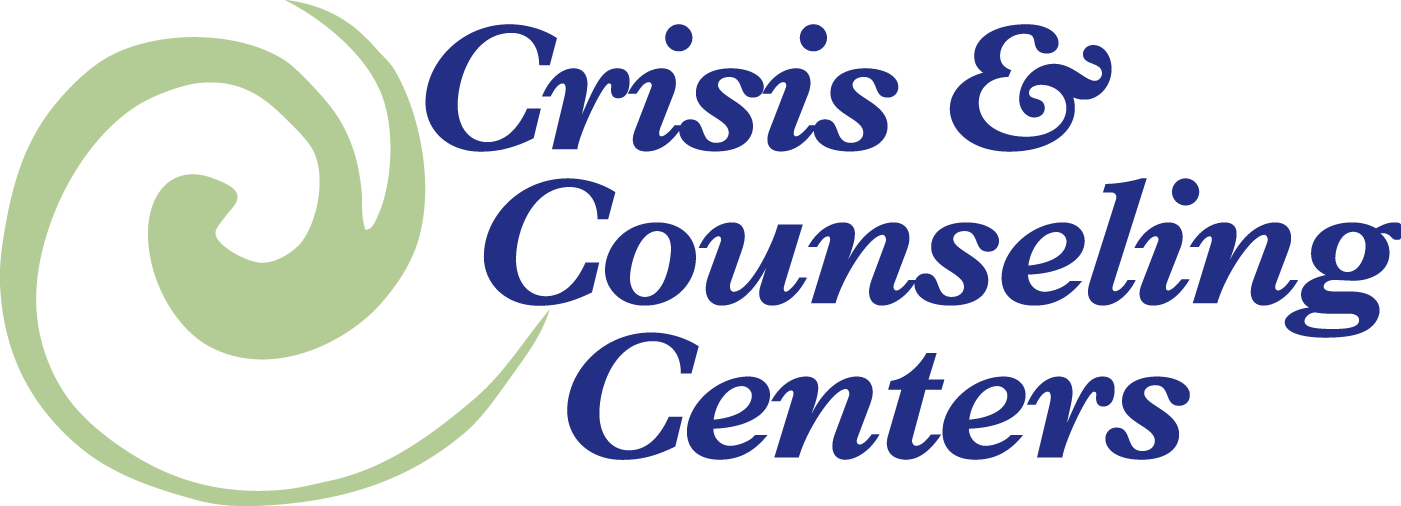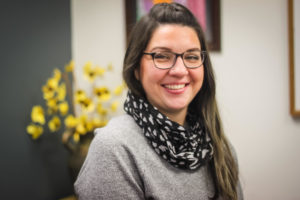When I sat down with Sarah for our interview over Zoom, she was doing what G.E.A.R. (Gaining Empowerment Allows Results) Parent Network family support specialists do best, being a parent. Her youngest son felt sick that day, so he was at home with Sarah while she worked. While we talked, he would intermittently pop in to show off a favorite toy or his cat Meatball to me. Sarah would gently redirect him to another activity like building a LEGO tower. Then, her son would wander off on another adventure, and we would pick up where we left off.
G.E.A.R. is a support network run by parents like Sarah who have children with emotional or behavioral health concerns to provide support to parents like them. G.E.A.R. can help parents and guardians navigate complicated family/youth-driven services like health care or education, offer educational workshops and classes, role model positive parenting skills, and give advice and support on a peer-to-peer level.
For Sarah working at G.E.A.R. means giving families support during some of the most challenging times of their lives. “When you are a parent facing a diagnosis for your kids, it feels like you are alone and have no idea what’s going to happen or if you’re doing things right,” says Sarah. “You second guess yourself, and having family support, particularly people who have walked the same path as you, is critical at a time when it seems impossible. G.E.A.R. makes things possible again for families.”
The peer-to-peer support that G.E.A.R. offers sets it apart from other services families encounter. “We’re not another doctor or provider telling you what to do. We’re people who are at the same level as you and the same place as you, without judgment, trying to help and support you. Some people might have a friend who could offer that kind of support, but not most people. It’s vital for the wellbeing of the kids, especially, but also the parents, through all of this,” says Sarah.
Before becoming a family peer support specialist with G.E.A.R., Sarah worked as a hairstylist. She worked in the field for 15 years and loved it. She built a strong clientele, enjoyed interacting with her clients and expressing her creativity. Her life changed, though, and her job as a hairstylist was no longer sustainable. “My child’s needs became so high that I wasn’t able to juggle that any longer. As much as a salon might try, there’s no room for the type of flexibility that having children with special needs requires. It just wasn’t compatible with my life anymore.” Sarah found G.E.A.R. through a training program for parent peer support specialists which led to her becoming a parent peer support specialist. As a mom of three, Sarah loves her job at G.E.A.R., where she can use her lived experiences to guide families through difficult times.
COVID-19 shifted how Sarah met and interacted with families, but much of her work experience stayed the same because she had always worked from home. The changes that happened in her children’s lives, however, were a big adjustment. “When COVID hit, I became all of my youngest son’s therapists. I did his occupational therapy, his physical therapy, his speech therapy. It was all done remotely, but it was ‘remote’ as in they told me what to do, and I implemented it. I had to do all of that and then juggle my two other kids’ school needs. And then I had to do my trainings and my work with my G.E.A.R. families. I did have support, my parents were around, and we stayed in each other’s bubble the whole time. But it was a challenge because if my kids know I’m home, they’re just going to come to me.”
Working at an organization that genuinely understood Sarah’s needs gave her a unique kind of support that she wouldn’t have been able to find anywhere else. “It’s been wonderful with G.E.A.R. in that if I’m struggling somehow, I can talk to my supervisors and say, ‘Here’s what’s happening. How can I get through this, and where can I look for support?’ So I look for support for myself and not just for the families that I serve.”
Sarah has seen the anxiety and worry levels of the parents she works with rising. COVID has made it increasingly more difficult for parents to get the help they need for their children. “Not being able to access services like therapies have been difficult,” says Sarah. “Kids have had to use telehealth or remote school, and I’ve seen the parents struggle with the decision to keep their kids remote. ‘Am I sending my kid to school? Am I going to work remotely? What is that going to look like? Can I work? Can I make money? How do I do this?’ Those things I don’t think would have ever been a challenge. It would have been the typical issue of ‘Oh, school’s ending for the summer. What am I doing with my kids all summer?’ Or back to school. ‘Can’t wait to get them back to school. What kind of activities are they going to do after school? What are their special needs for accommodation? What are their clinical needs?’ My job is helping them juggle those things.”
There were also new limits to the practical help Sarah offered the families she supports. “Before the pandemic, we could help families with transport. If they needed a ride to go to the courthouse to file papers, we could do that. If they needed to do laundry, we could meet while I helped them bring their clothes to the laundromat. That’s something that I looked forward to because it’s real logistical help as well as emotional support.”
When Sarah faces challenges in her personal life, it isn’t always easy to bring positivity to her work. “It can be hard to serve families,” says Sarah. Her son comes over to her, becomes fascinated with the huge bookcase behind me in my home office, and declares that he wants to go to my house. Sarah assures him that he will someday and sends him on a mission to find his toy dinosaurs. “It’s hard to build someone else up when you’re feeling low,” Sarah continues. “So struggling with low feelings, and still being able to build other people up and empower other people is a real challenge.”
Despite the tough times she’s been through with her family, being someone who empowers others is what she loves about her role. “Being able to see a family at their lowest and watch them pick themselves up and keep moving forward and seeing the growth and strength and helping to foster that strength is so rewarding. Also, knowing that my experience can help someone else out there so that even if I felt like I was alone at one point, I’m able to take that difficulty and turn it into ease for someone else.”
About the G.E.A.R. Parent Network
G.E.A.R. provides an opportunity for parents to support each other and work together, family to family. G.E.A.R. empowers parents by helping them build on the identified strengths in their families and by providing safe and supportive avenues for emotional support and problem-solving. G.E.A.R. believes in a family-driven system of care that helps children, youth and families function better at home, in school, in the community, and throughout life. We want you to know that you are not alone. If you are a parent of a child with emotional/behavioral concerns, you know that there is much to learn and manage on behalf of your child and your entire family. The G.E.A.R. Parent Network is here to help.
Note: Since this interview, Sarah has left her role as a Family Peer Specialist in pursuit of other opportunities.
 Interview and story by Amelia Metcalfe [she/hers], Communication & Development Specialist at Crisis & Counseling Centers
Interview and story by Amelia Metcalfe [she/hers], Communication & Development Specialist at Crisis & Counseling Centers

